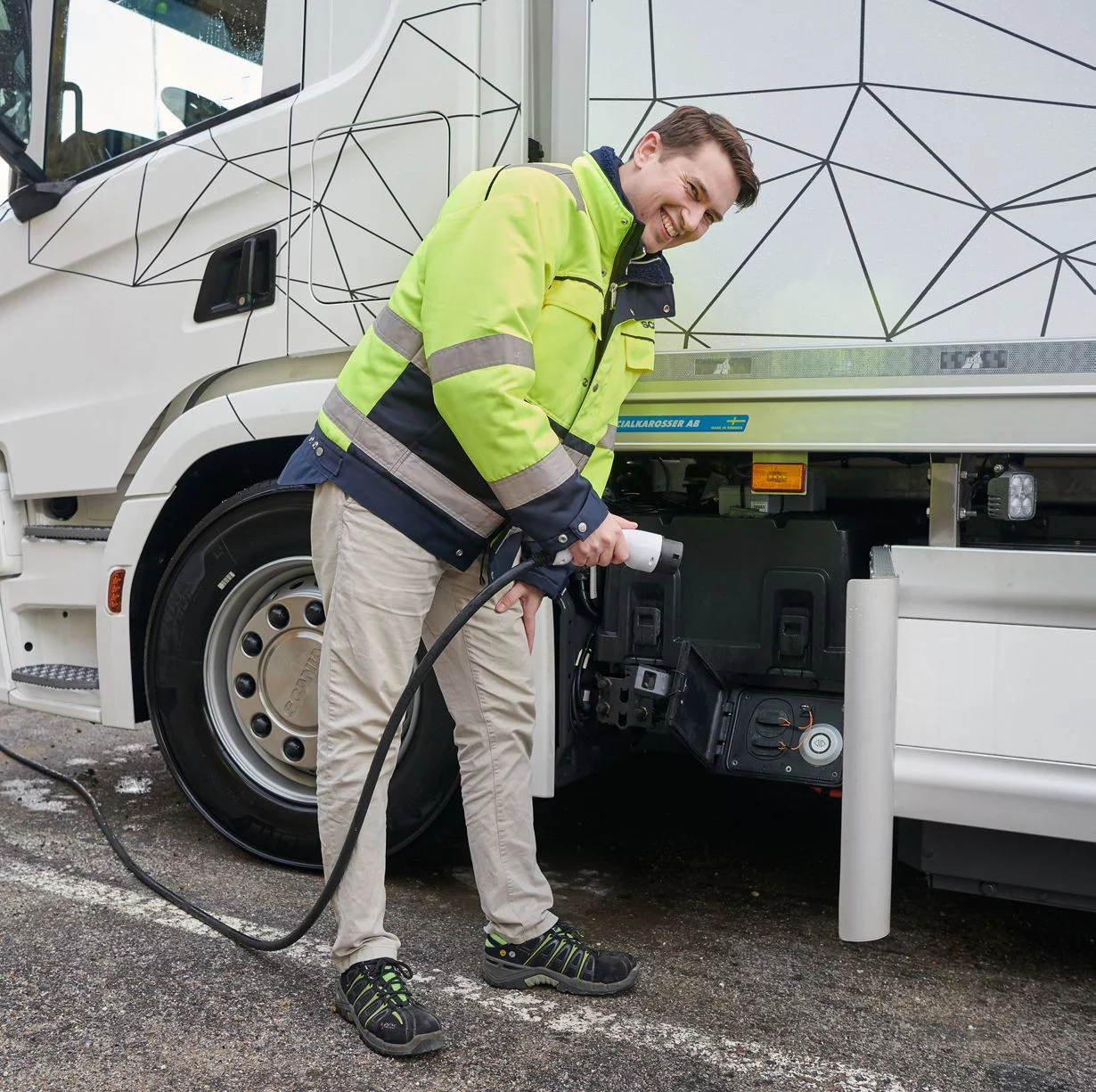
Research by Top Sector Logistics, Districon and Simacan
Hybrid vs. full electric trucks: The best choice for sustainable city distribution
Reduction of CO2 emissions
Impact on retail distribution
Can e-trucks take over existing routes?
Plug-in hybrid versus full electric
An extensive report on the research results has been published. The most important finding in this report is that plug-in-hybrid trucks can, in principle, carry out the same trips as diesel trucks. On the routes between the zero-emission zones, the battery can always be charged enough to be able to handle the stops within these zones fully electrically. For the fully electric trucks, however, this turned out to be a different story. They can already take care of a considerable part of the current trips, namely 34% to 100%, but certainly not all of them. Bruijne: “This depends to a large extent on the circumstances. In the study, we worked with various scenarios and calculated all relevant parameter settings: quiet weeks versus peak weeks, bad weather versus nice weather, experienced or less experienced driver, et cetera. Then you see that these conditions are very decisive for what you can achieve with an e-truck.”
City hubs not an attractive alternative
Conclusion: For retailers who want to realise an emission free last mile to their shops in the coming years, or by 2025 at the latest, plug-in hybrid trucks currently seem to be the best option. For making full trips, i.e. the same trips that are currently made by diesels, the fully electric trucks still fall short, so that transhipment hubs would have to be used. According to Bruijne, however, this is not an attractive alternative: “Not only would it make the operation much more complex, it would also require a lot of extra equipment and personnel. Another big disadvantage is that you would still have to drive the long distances from DC to hub in a diesel truck and my estimation is that, on balance, you would end up polluting more than if you drove the entire journey in a hybrid truck. A feature of a plug-in hybrid is that it has an extremely efficient engine, which charges the battery as efficiently as possible while driving.”
Payback period still uncertain
According to Bruijne, however, retailers and transporters still need to acquire a great deal of knowledge before they can make the right decisions. “The cost of an electric truck is still three times as high as a traditional diesel truck. What is the right moment to step in and how do you recoup the costs? That is really difficult. Especially as additional legislation is constantly being introduced and the technology has not yet been fully developed. At the moment, hybrids seem favourable, but the expectation is that the range of electric trucks will increase considerably and that there will come a time when hybrids will no longer be allowed in inner cities. That moment is now set for 2030, while the depreciation period for such a truck is eight years. What is the wise thing to do? Nobody knows exactly and that is why it is so important that this kind of research is carried out. From Simacan we are happy to contribute to this.”
This might also interest you:
Lastmile info
Haal de onzekerheid uit logistiek! Zichtbaarheid, controle en samenwerken in logistieke operaties Optimaliseer jouw supply chain met Simacan: dé logistieke Control Tower voor real-time transport

Thanks to data cleaner and smarter through the city
In the realm of traffic and transport, integrating public and private data streams can significantly enhance urban logistics. By securely connecting these data sources, cities

